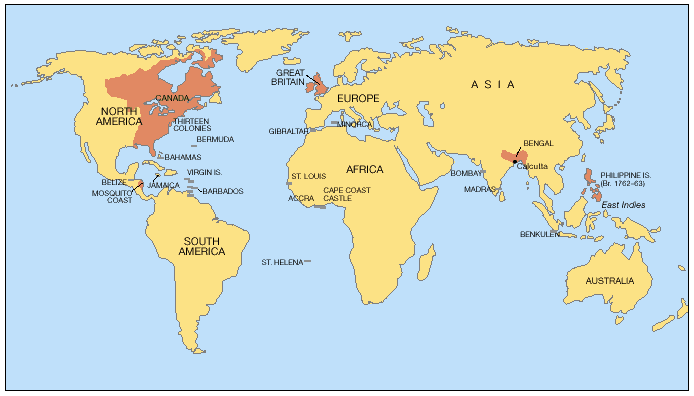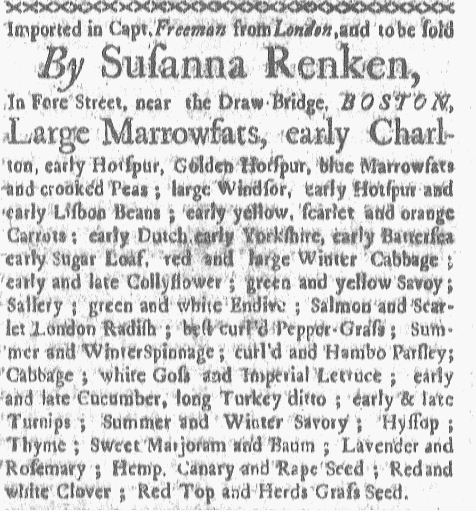GUEST CURATOR: Elizabeth Curley
What was advertised in a colonial newspaper 250 years ago today?

“A fresh Assortment of Garden Seeds … warranted to be good.”
As a female millennial who is interested in women’s rights and equality, seeing a woman merchant who posted in a newspaper made me very excited! Lydia Dyar sold “A fresh assortment ” of seeds of all types, from spices and herbs to vegetables. She listed quite a collection of different types of seeds and goes on to say that she has even more. The seeds came from London and had been recently brought in on “the lasts Ships, and Captain Freeman.” Even though the seeds came from London, they had probably been collected from all over England’s other colonies, from the Caribbean to India to trading posts in Africa.

With it being February and winter being somewhat close to over, the early American colonists would be starting to think and prepare for spring. Spring meant that the growing season was going to start and seeds would be a necessity. Many early American colonists grew much of what they ate rather than always trading or purchasing food. They had no 24-hour CVS or Super Walmart. Lydia Dyar also “warranted to be good” which would be a sort of warrantee that the seeds would yield the appropriate amount of fruit.
**********
ADDITIONAL COMMENTARY: Carl Robert Keyes
When she first selected this advertisement, Elizabeth asked if it was out of the ordinary for women to participate in the eighteenth-century marketplace as retailers, wholesalers, suppliers, or producers rather than as consumers. I explained that women filled those roles more often than everyday assumptions about early America might suggest. In urban ports like Boston, New York, and Philadelphia as many as one-fifth to one-third of shopkeepers were women.
On the other hand, women did not tend to place advertisements in proportion to their numbers. It would not quite be correct to state that advertisements placed by women were uncommon, but on the whole women tended to be less likely to promote their businesses in the public prints than men.
Given her desire to feature advertisements by women, Elizabeth had three choices in the four-page Boston-Gazette and its two-page Supplement, both issued on February 17, 1766. Lydia Dyar’s advertisement appeared on the second page of the supplement. Shopkeeper Jane Eustis advertised an extensive assortment of textiles on the third page of the regular issue.

And Susanna Renken, a competitor to Lydia Dyar, inserted this advertisement on the final page of the regular issue. Notice that both women sell many of the same seeds. Both indicate that they had been supplied by Captain Freeman. In the absence of an existing personal or commercial relationship with one seed seller or the other, how might a colonial consumer have decided which to visit?
Convenience based on location might have been a deciding factor. However, Dyar made appeals to potential customers that Renken did not: “warranted to be good, and of last Year’s Growth, sold at the lowest Terms.” Renken announced that she had seeds for sale, but Dyar put extra effort into marketing her wares. Perhaps Renken ended up regretting that the Boston-Gazette published a supplement – including Dyar’s advertisement – that week instead of holding her competitor’s advertisement until publishing a new full issue the following week.
